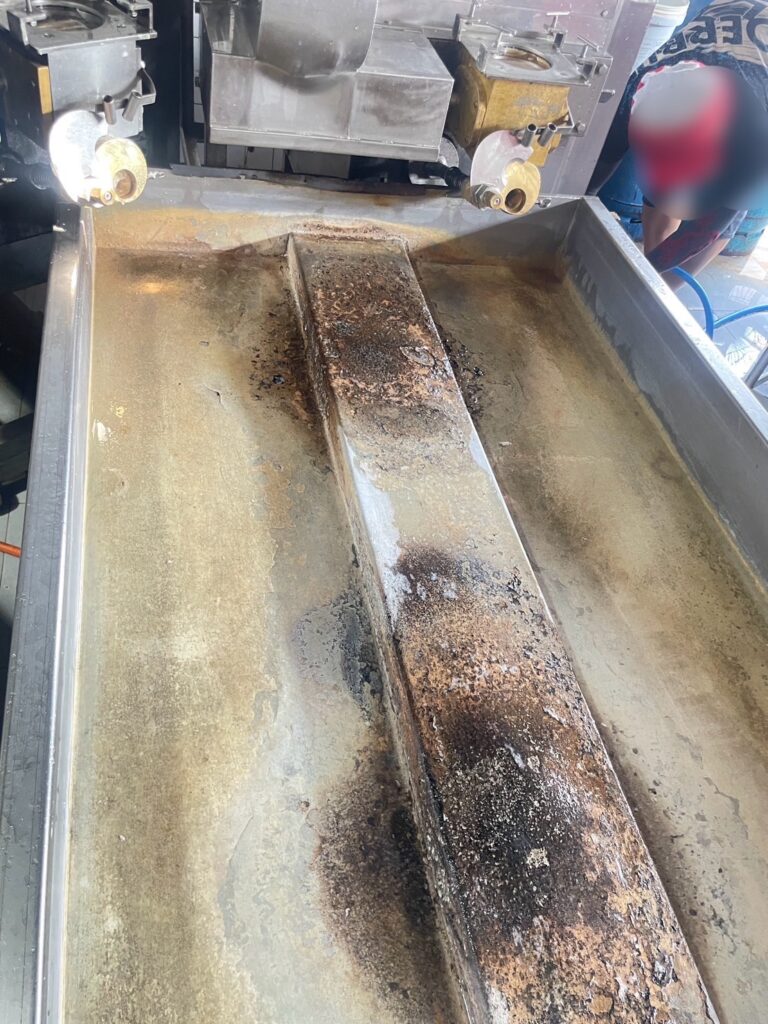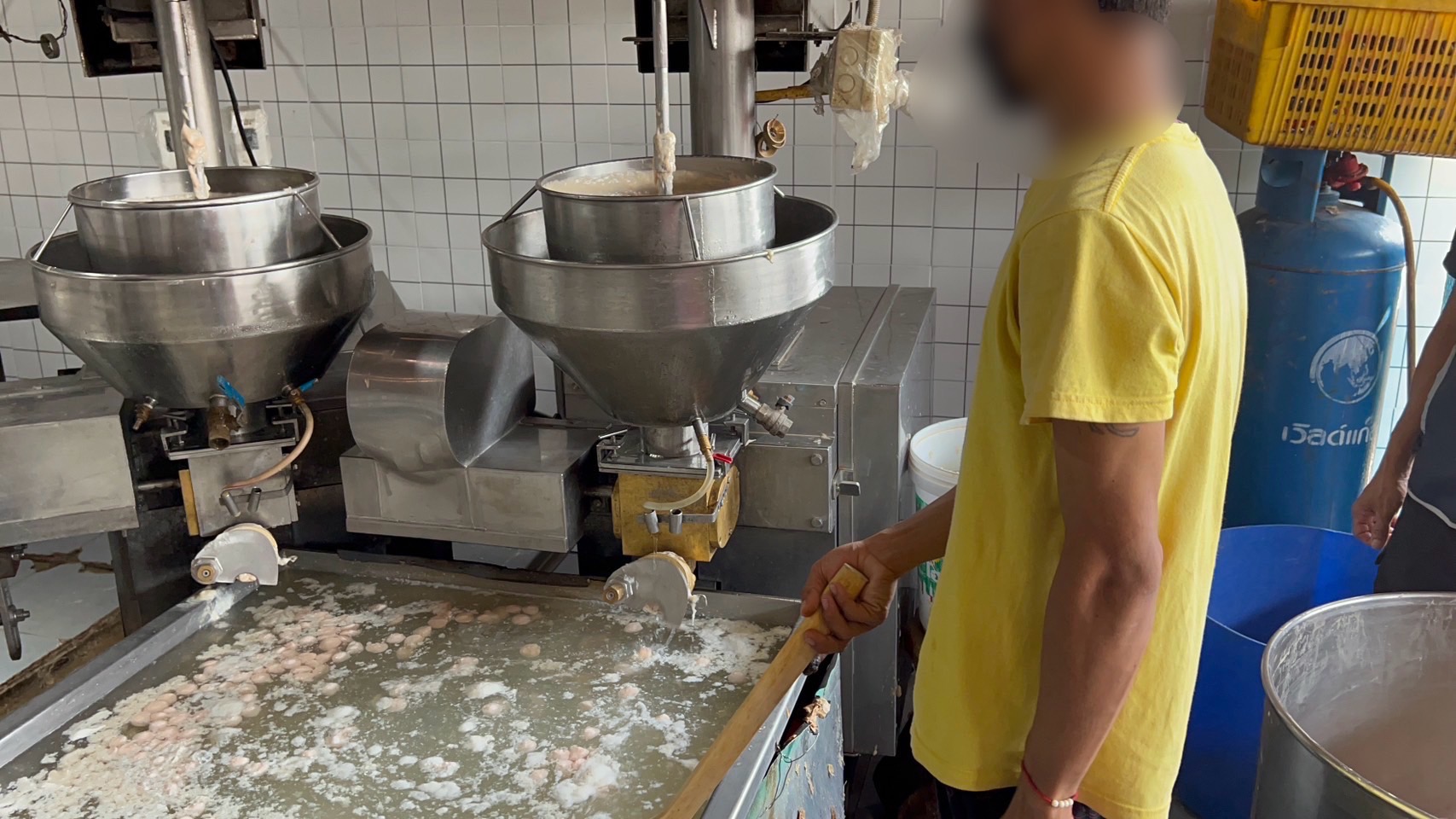PATHUM THANI, Jan 22 (TNA) – The Central Investigation Bureau (CIB) and the Food and Drug Administration (FDA) have raided two illicit meatball manufacturing facilities in Pathum Thani province adjacent to the capital.
The unlicensed production consisted of nine different brands, destined for sale in Pathum Thani and nearby areas.
At the first location, a residential property in Lam Luk Ka district, owned by Mr. Suntorn, was converted into a clandestine meatball factory. Suntorn claimed to have been operating for one month, and during the raid, authorities discovered over 22 items, including unbranded meatballs and pork balls of various brands totaling more than 2,000 bags, pork fat, grinding machines, mixing machines, and molding machines.
The second location, also a residential property also in Lam Luk Ka district, owned by Ms. Phetnapa (surname withheld), was exposed as another unauthorized meatball production facility. Phetnapa claimed to have been in operation for approximately 5-6 months.

During the raid, authorities discovered unbranded meatballs and two branded varieties, totaling over 400 bags. The brands identified were AR pork meatballs and 2 Sons pork meatballs. Additionally, 5-kilogram bags of unlabeled beef meatballs and various production equipment, including non-compliant ingredients, were seized in violation of the Food Act of 2522 B.E.
Both owners admitted to producing meatballs without proper authorization from the FDA and the provincial public health office.
They utilized human labor for the production process, including mixing various ingredients. The pork and chicken used as raw materials were purchased from the market and processed into substandard meatballs for sale in fresh markets in Pathum Thani, Bangkok, and nearby areas such as Rangsit Market, Klong Toey Market, and Talad Thai Market. Both facilities had a production and distribution capacity of approximately 500 kilograms per day, averaging 15,000 kilograms per month.
Legal proceedings have been initiated against the owners under the Food Act of 2522 B.E., specifically for “selling food products with incorrect labeling,” which carries a fine of up to 30,000 baht.

Concurrently, samples of the seized food items have been sent for analysis at the Department of Medical Sciences to detect any harmful substances, types, and quantities of contaminants, as well as bacteria causing diseases. If prohibited substances are found, additional charges related to producing adulterated food may be filed, with penalties including imprisonment for up to two years or fines up to 20,000 baht, or both.
Consumers who suspect any irregularities in food products are encouraged to report them through the Consumer Protection Police Division’s hotline at 1135 or via the division’s Facebook page. – 819 (TNA)














